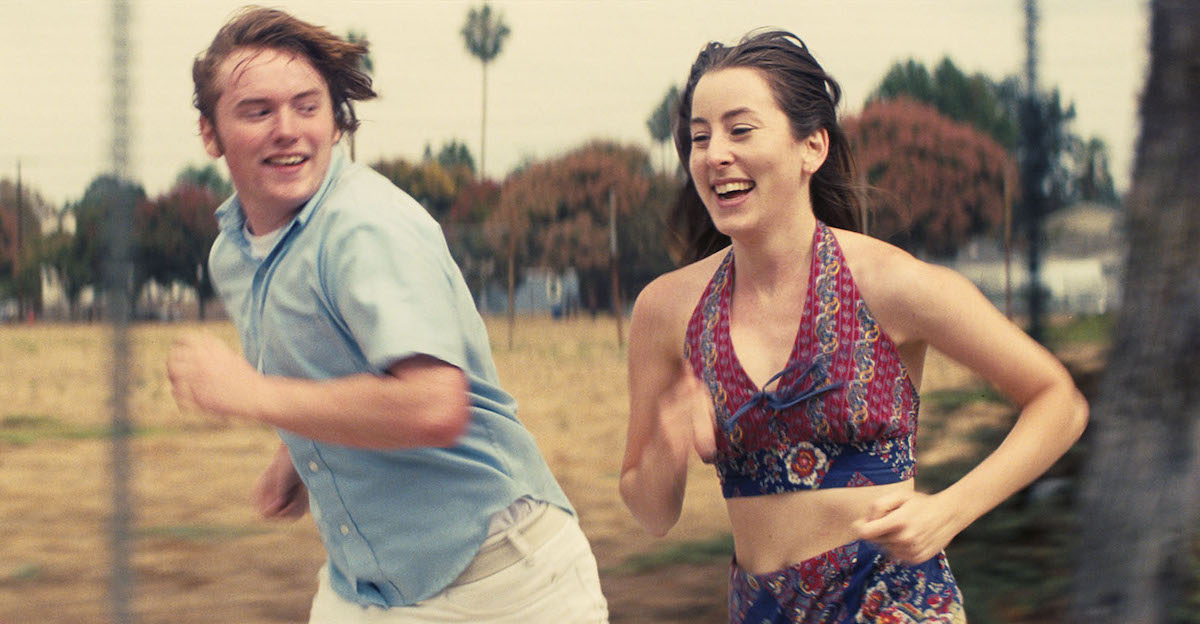My series on cinematic nostalgia continues—after Wes Anderson’s Francophilia, Ridley Scott’s Italian farce, and Spielberg’s Puerto Rican fiasco, here’s a California story: Paul Thomas Anderson’s ninth feature film, Licorice Pizza, the only Hollywood movie made last year with some reason to be remembered. It’s a story about the ’70s, Hollywood, and the confusion of love in post-’60s America. It also mocks the pretense on which Hollywood thrives and suggests innocence is preferable to celebrity.
Paul Thomas Anderson is, like Wes Anderson, a Hollywood darling Hollywood cannot quite believe deserves honor—six of his movies have gathered him 11 Oscar nominations (three for Licorice Pizza) and another 17 for everyone else involved in his movies. As of this date, he has won nothing. His major awards come from Europe—the Golden Bear in Berlin for Magnolia and the Silver Bear for There Will Be Blood, the Best Director prize in Cannes for Punch-Drunk Love, and the Silver Lion Best Director in Venice for The Master.
Hollywood does not quite like the very things European festivals love. Anderson’s movies are full of Americana, and he’s especially attentive to the crazy parts of the American desire for freedom and therefore the great distinction between how small any American is in comparison to the vastness of America. But he’s insufficiently pious in his liberalism, insufficiently moralistic in his presentation of American history. In Europe, they love an artist, though their judgment is not always sound. In Hollywood, artists have to sneak past the preference for polished mediocrity.
Licorice Pizza opens with a look at a confident, amusing 15-year-old boy, Gary, flirting with a confused, contemptuous 20-something girl, Alana. Since it is dangerous to be a confident young man or even boy in America nowadays, this is a very striking introduction and already shows how useful nostalgia can be artistically. Moreover, the boy is played by Cooper Hoffman in his debut, son of Philip Seymour Hoffman, perhaps the most lamented actor of his generation in light of his sudden death and who appeared in a number of Anderson’s movies, and recalls enough of his father to earn him sympathy.
Anderson uses this for a surprising purpose: He wants the boy to show that go-get-’em attitude that made Americans what they are, which he believes we still secretly love and perhaps need to recapture. Just get a look of that kid—business is on his mind before he can even grow a mustache! Once a child star, Gary’s life should have been warped by Hollywood but isn’t. He grew up too fast and is large for his age, and plain, and ignores the fashionable things required for celebrity. He’s also determined to make himself a success rather than be admired. He acts quickly on business ideas and has mastered the strange language of deference, imposition, and promise that makes a businessman persuasive to investors, customers, and, of course, their very selves.
A free man already, Gary is eager to be his own boss, so he starts two businesses, selling water beds and then a pinball arcade, no doubt the prelude to a bright future. Another hilarious touch suggests what a strange country America is: He has hired his own mother to help run a PR business. Much of this side of the movie has to do with desire and how advertising transformed American business, including of course by using celebrity. You can imagine how one advertises waterbeds.
But the movie is mostly about love, the way modern Americans discover themselves; business is also part of adulthood, but love counts more. It’s based on a kind of freedom—often enough, love defies habit or convention. The boy meets an older girl in this case. Love also requires a kind of equality—he’s very forward, she’s incredibly angry. He’s as good at ignoring offenses as she is at fending off advances, and she’s as defensive as he is thick-skinned. Their friendship, then business partnership, and even their budding romance are somehow a dare, each unable to believe the other can be serious or more than a dream. Anderson has achieved something considered impossible before: He has made a romance about modern America that plausibly avoids sex. Indeed, we can say he has snuck a romantic comedy by our feminist liberal elites by writing an angry girl character.
Singer Alana Haim plays this character. This is also her feature film debut, and she seems perfectly cast for the San Fernando Valley in the ’70s. She has the post-hippie normal girl look, somehow both proud and unpretentious, and she oscillates between an inspiring quality that has to do with her smile and a plainness Anderson likes to insist on by keeping the camera rolling a few seconds more than we are used to. Like the joke in the movie goes, she’s very Jewish just as that became an attractive novelty with Barbra Streisand. All told, she’s plain and her face doesn’t distract from her strange drama.
Licorice Pizza is more about her than about the boy she’s considering dating, unsurprisingly— modern artists are more fascinated with women, who are both more natural and more politicized than men. Alana learns to get over the temper she’s inherited from her father, so as to figure out her life; she grew up in the ’60s and received no guidance. She’s going nowhere for lack of ambition, works dead end jobs, and has no real friends. Her pride makes it impossible for her to love ordinary, clueless young men or obey even her family, and she almost becomes a political activist in a moment of crisis! It turns out, however, that women’s liberation would be just enough to destroy any chance she has at happiness. She tries out various boyfriends, she learns what’s available to her, but she cannot resist the combination of loyalty and optimism Gary offers her. At first she enjoys the safety of his boyish affection and, like his mother, becomes his business partner. But once together, the story turns to the picaresque, and they have to take care of each other; he learns about the difficulties he has to overcome and she realizes she’s stuck among people driven crazy by success, celebrities, politicians, etc. Thus, she begins to appreciate how normal he is in his blindness to the all-American troubles driving her crazy: He’s romantic, but simply doesn’t understand anything about women, since the modern language of equality conceals anything subtle or politically incorrect. He needs a lot of help, but then again so does she—although she drives trucks, she’s in peril of falling apart in face of risk.
Their love is possible across the age difference because America is going nuts, but it is also threatened for that reason—it goes against every fashionable idea about reckless self-obsession. I’d go further and congratulate Anderson for restoring a kind of innocence to American nonsense. Since the couple are still both young, their tantrums and their fights are more forgivable and less mad than if they had been adults. They also learn to treat each other better, and their breakups seem to come from helplessness rather than vanity. Unsurprisingly, the girl wants to be romanced; she longs for some kind of beauty, not mere business acumen, but the boy has no idea what that might be. Perhaps she can be less demanding and more willing to gentle his condition. Anderson has in fact snuck an entire marriage story past his admirers, since Alana and Gary are friends, business partners, and lovers, and it is done with such lack of self-importance that it will surely be ignored.
I’ll end with an apology for betraying the artist’s choices by attracting attention to those things he has understated or concealed. I take rather seriously the critic’s duty to follow the lead of the artist, but I fear there’s no way around it if this movie is to have an attentive audience. I recommend Licorice Pizza to everyone who wants to see innocent young people avoid falling into vice and cruelty. For a movie about the 1970s, in L.A. of all places, this means it’s a fairy tale!

